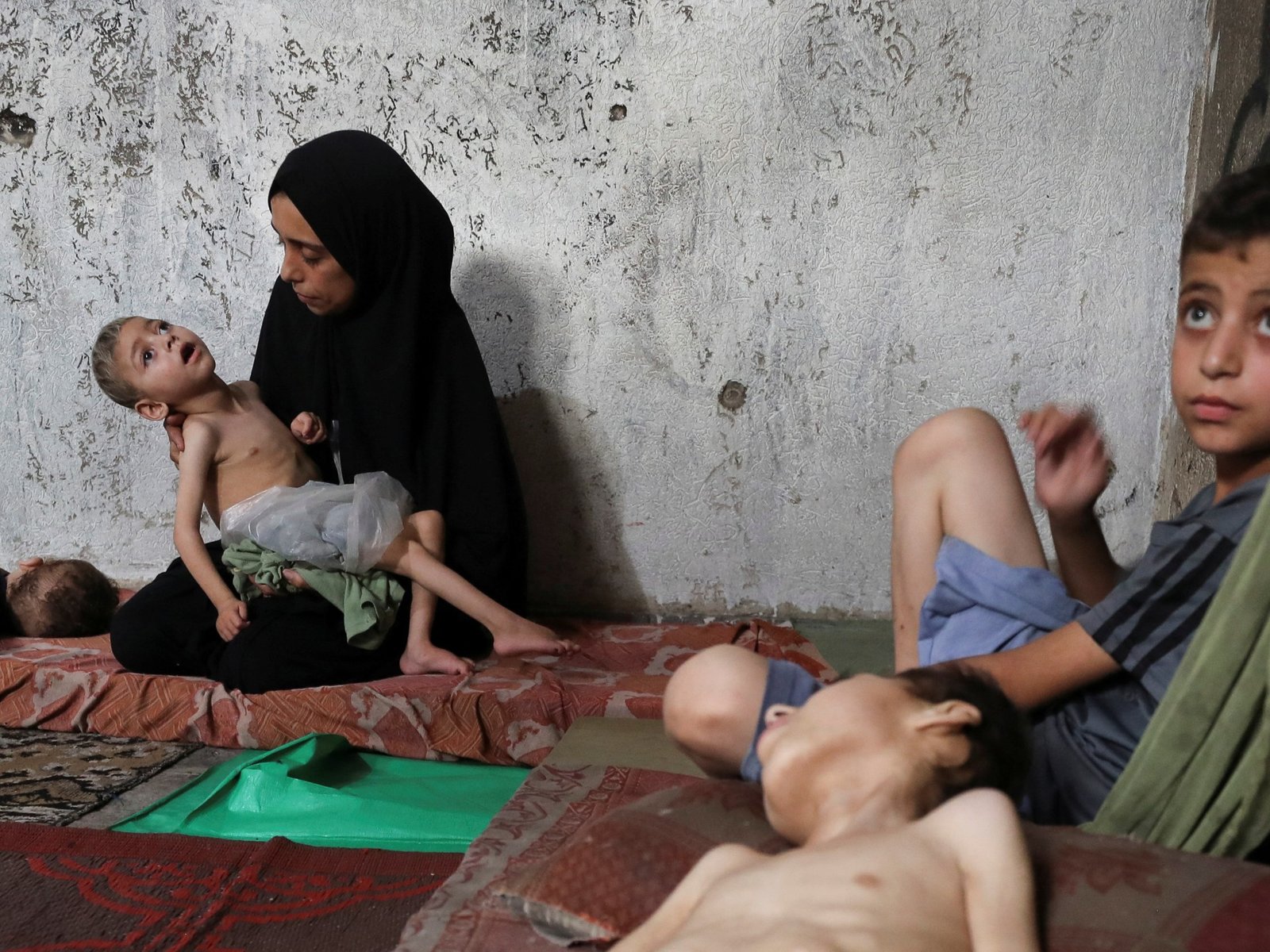Tragically, at least 62 individuals have lost their lives, including 19 aid seekers, due to Israeli strikes across Gaza, as reported by hospital sources to Al Jazeera. Additionally, two individuals succumbed to malnutrition amidst escalating global outrage against Israel’s military actions.
On Thursday, Gaza’s Health Ministry revealed that around 115 Palestinians have perished from starvation since the onset of Israel’s offensive in October 2023. A significant portion of these casualties, many of whom are children, have occurred in recent weeks.
Israel imposed a full blockade on Gaza in March and has allowed only minimal aid into the region since late May, resulting in a severe humanitarian crisis and warnings of widespread food deprivation.
In a statement Thursday, the United Nations Relief and Works Agency for Palestine Refugees in the Near East (UNRWA) warned that families are disintegrating under the weight of this hunger crisis. Philippe Lazzarini, the head of UNRWA, highlighted on social media the dire situation: “Parents are too hungry to care for their children. Those who make it to UNRWA clinics lack the energy and resources to follow medical guidance.”
Additionally, the UN humanitarian agency, OCHA, reported that Israel is obstructing efforts to verify the aid awaiting distribution.
Hani Mahmoud, reporting from Gaza City for Al Jazeera, noted the worsening conditions, with Palestinians desperately searching for any available assistance. “Gaza is facing enforced starvation and dehydration, resulting in an increasing number of malnourished individuals and a critical lack of food and essential supplies,” he explained. “Health sources have indicated a collapse of immune systems, leaving many unable to fend off rampant diseases.”
As the situation remains dire, international condemnation has intensified. On Thursday, over 60 members of the European Parliament requested an urgent meeting to discuss actions against Israel, sending a letter to the EU’s foreign policy chief, Kaja Kallas. Lynn Boylan, an Irish MEP, criticized EU leaders for their perceived double standards when it comes to valuing Palestinian lives compared to others, saying, “Clearly, Palestinian lives are not regarded as equal to, for example, Ukrainian lives.”
She also expressed concern about the chilling effect on dissenting voices: “Those who dare to speak out against Israel face immediate backlash and attacks.” In a growing wave of outrage, 28 countries condemned the aid blockade earlier this week, calling for an immediate cessation of hostilities.
In the UK, Prime Minister Keir Starmer announced plans to confer urgently with his German and French counterparts regarding swift actions to halt the violence and provide essential food supplies.
Diplomatic Collapse
As the humanitarian crisis in Gaza spirals further out of control, peace negotiations have once again faltered. US envoy Steve Witkoff announced his team’s departure from discussions in Qatar shortly after Israel withdrew its delegation. Witkoff attributed the breakdown to Hamas’s alleged lack of commitment to a ceasefire, stating, “We will now explore alternative avenues to secure the release of hostages and strive for a stable environment for Gaza’s populace.”
Hamas, for its part, expressed surprise at Witkoff’s comments, insisting on its willingness to continue negotiations aimed at achieving a lasting ceasefire.
In the United States, President Donald Trump has been advocating for a resolution while simultaneously supporting the displacement of Palestinians, which some critics argue could be viewed as a form of ethnic cleansing.
France’s Support for Palestine
In a significant political development, French President Emmanuel Macron declared his intention to officially recognize the State of Palestine during the United Nations General Assembly in September. Macron emphasized that this decision aligns with France’s historic dedication to securing a just and lasting peace in the Middle East, positioning France as a leading European nation in recognizing Palestinian statehood.
This announcement was lauded by officials from the Palestinian Authority, including Mahmoud Abbas’s deputy, who interpreted the move as a reaffirmation of France’s commitment to international law and the Palestinian right to self-determination. However, Israeli officials responded sharply, with Defense Minister Israel Katz denouncing the decision as a “disgrace and a surrender to terrorism,” asserting that Israel would not permit the establishment of a Palestinian state that could threaten its security and historical claims to the land.

